The History of the English language
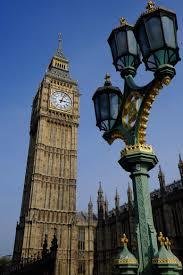
London
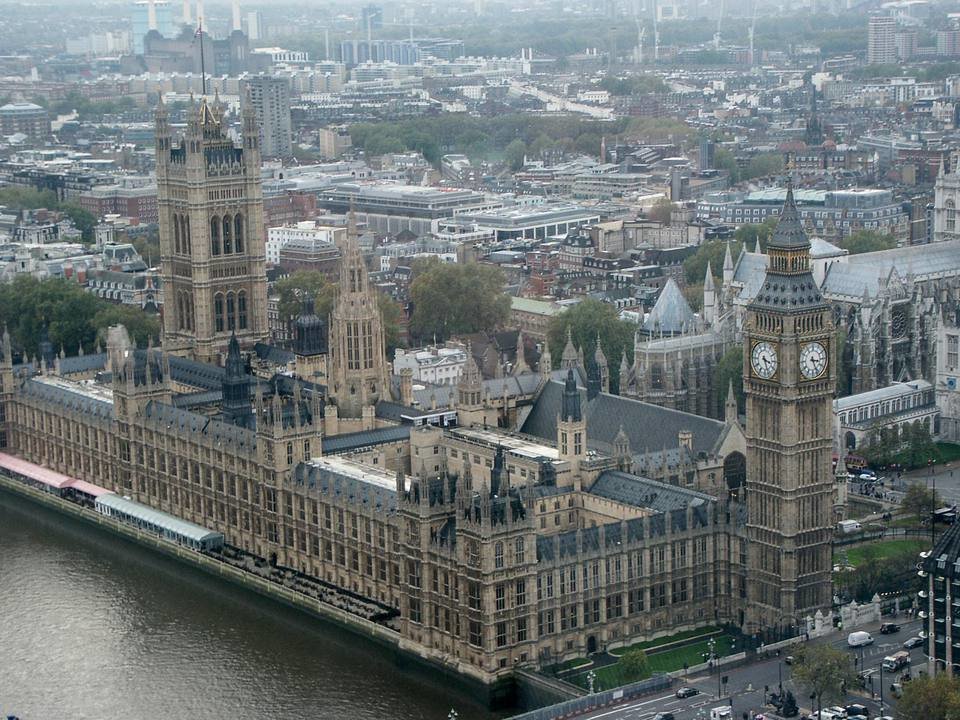

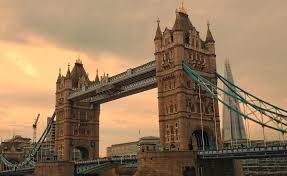

Selected Languages
and Accents
of the Brittish Isles
The Celts - legend and myth


They've been called "barbarians" and savages
but who were these mysterious people
that where the first known
people to live on the British Isles?
(also known as the Britons)

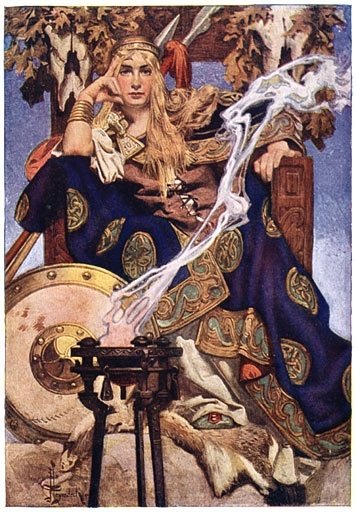
Queen Maev
by J.C. Leyndecker.
Women among the Celts could be both kings and warriors.
Remnants of the Celtic language
Crag
Combe
Brat
Brock
Tor
Caer
Thames
Dover
London

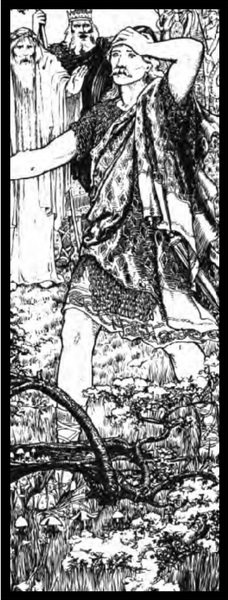
Romans!
Latin and Greek

43-410
A.D.

Roman ruins and architecture
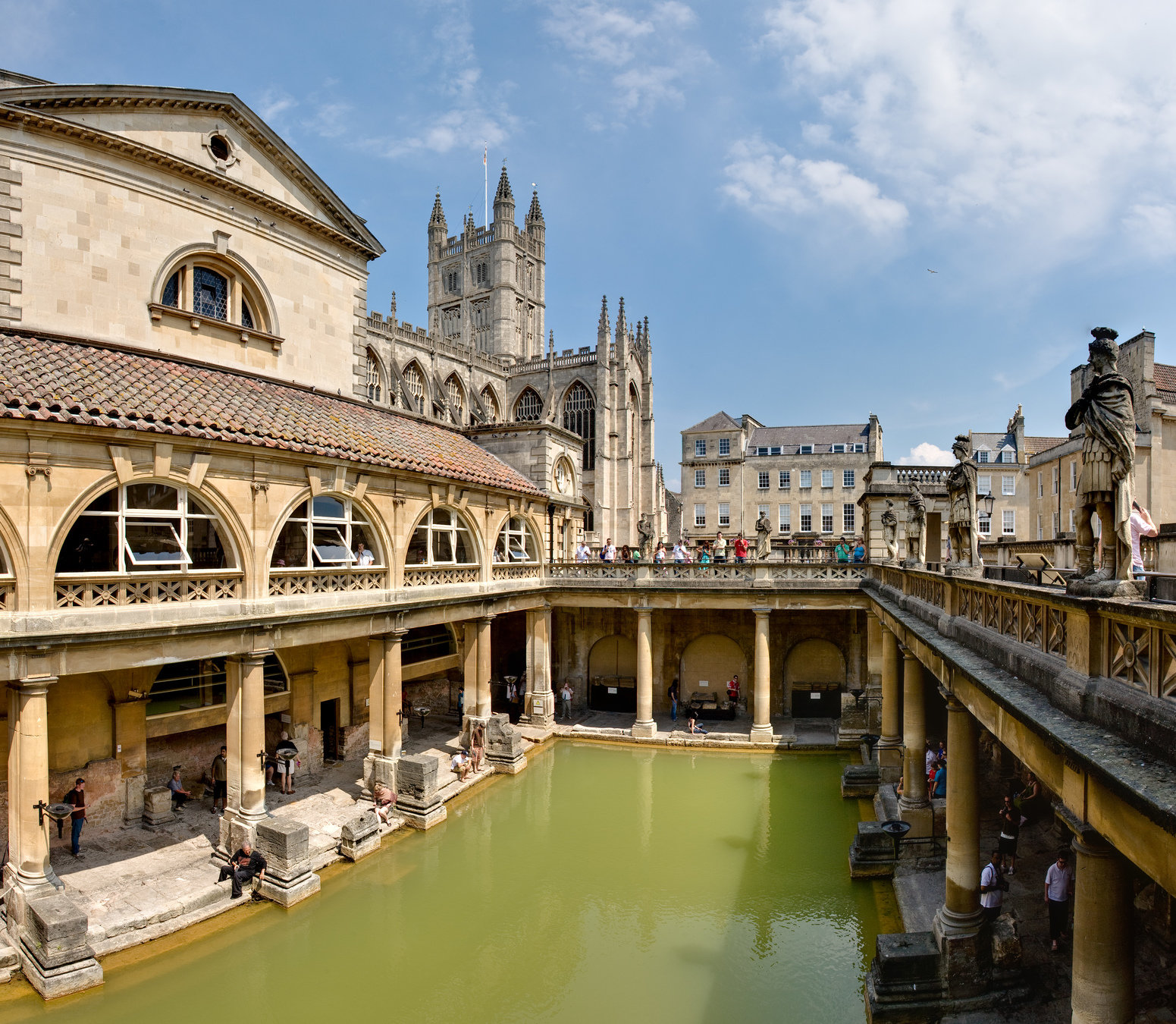
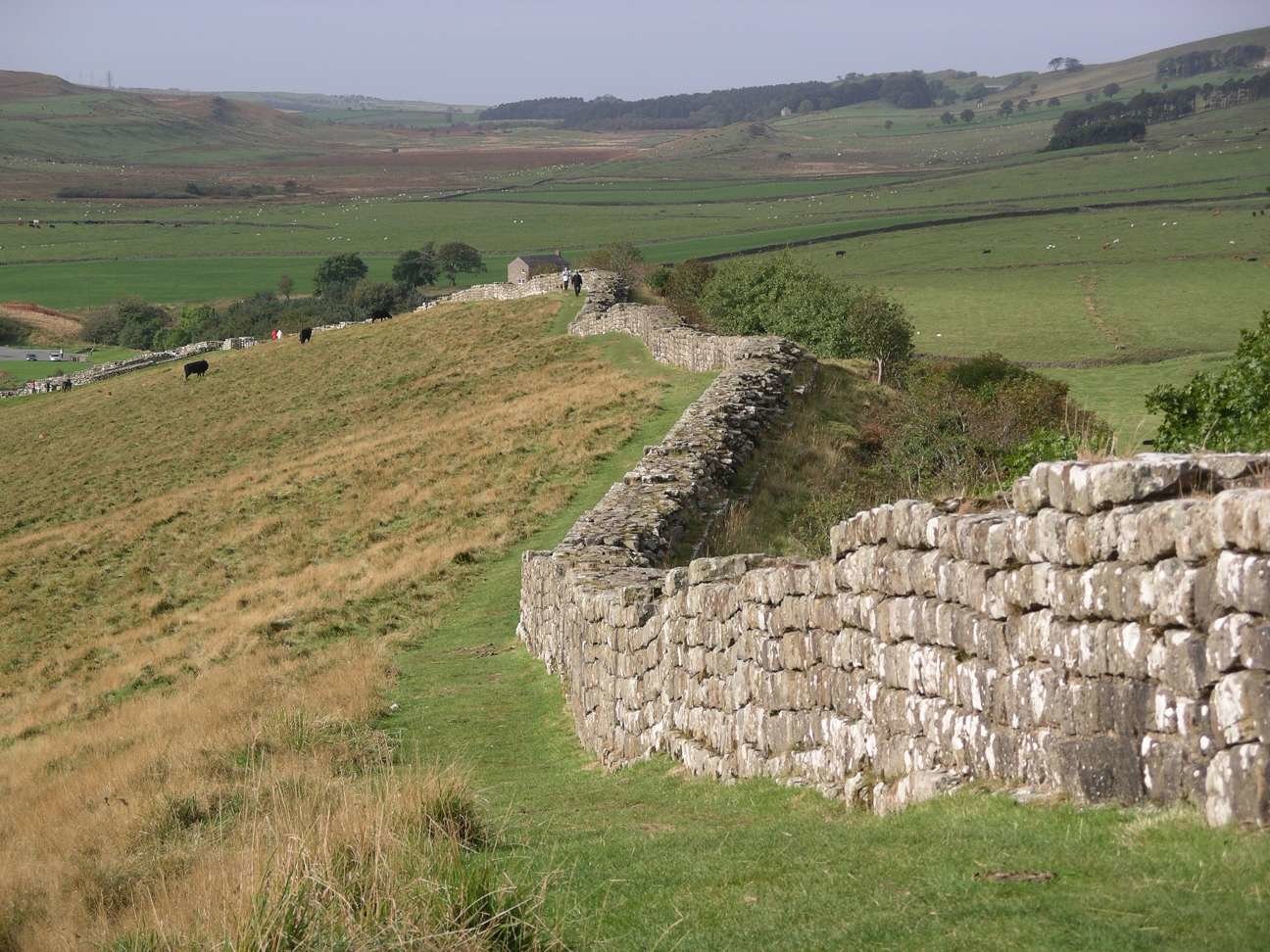
Bath Spa
Hadrian's wall
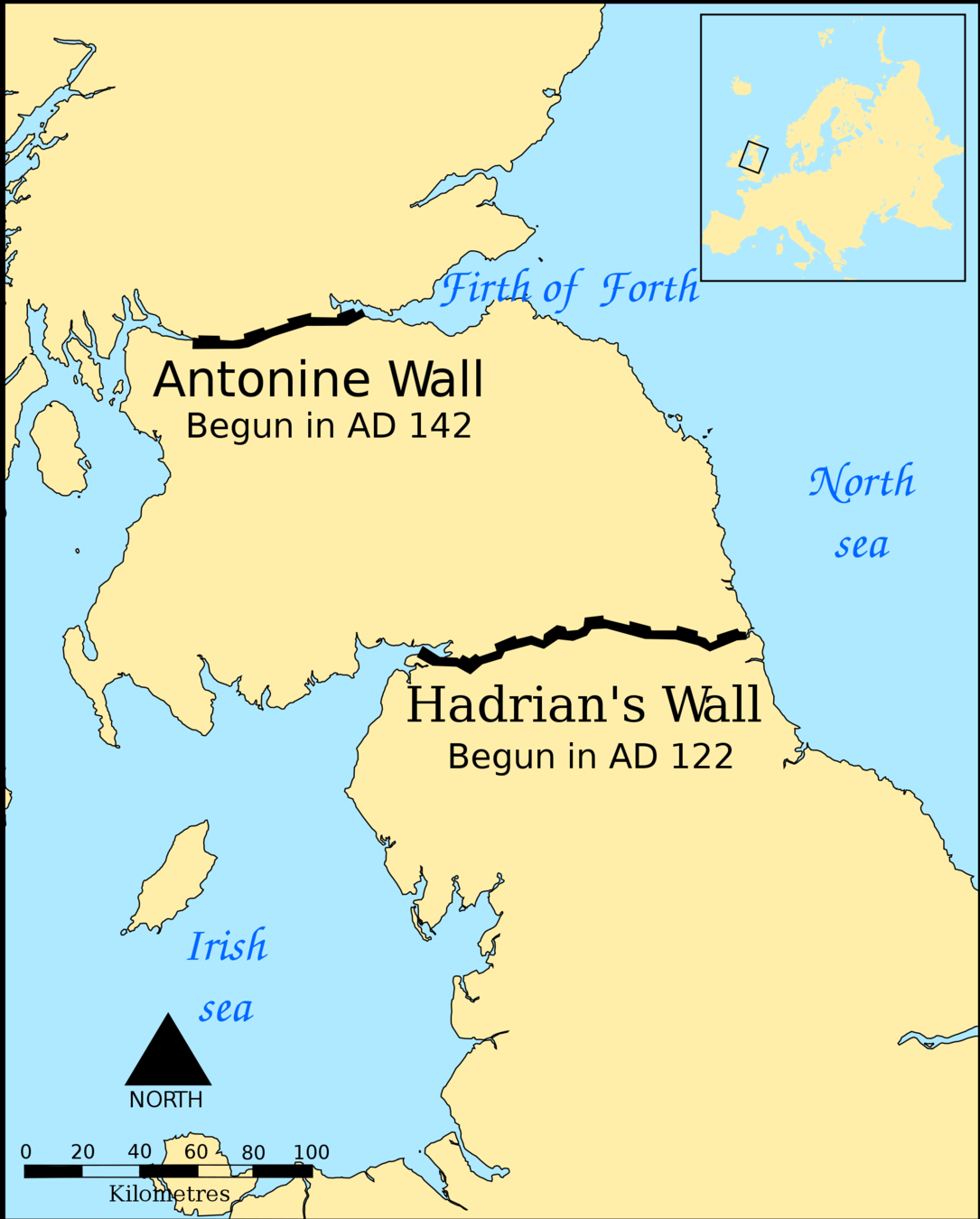
Trade and battle with Romans
anchor, camp, chest, cook, copper, devil, dish, fork, gem, inch, kitchen, mile, mill, mint (coin), noon, pillow, pound (unit of weight), punt (boat), sack, street, wall, wine
Western germanic tribes
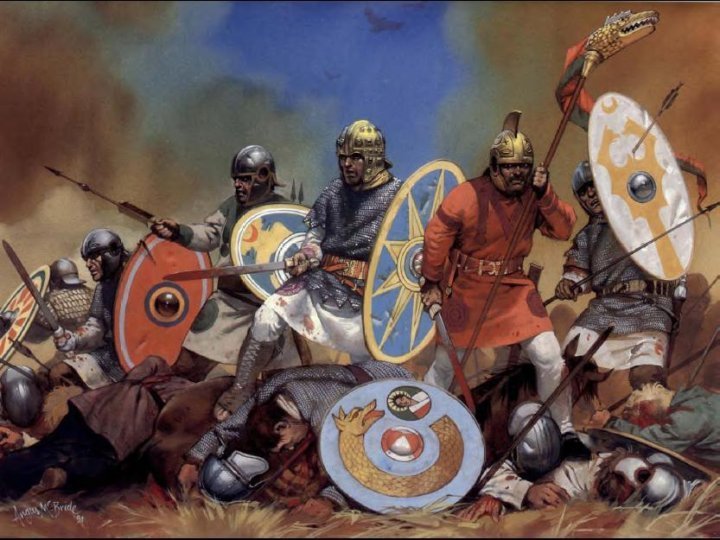
West germanic tribes from the lowlands of Europe migrated to Britain during the 5 Century. They were warlike and adventurous and wanted more land.

ca. 450 -
Old English
Angles, Saxons, Jutes and Frisians
The dialects of Old English are more or less co-terminous with the regional kingdoms. The various Germanic tribes brought their own dialects which were then continued in England.
Thus we have a Northumbrian dialect
(Anglian in origin), a Kentish dialect (Jutish in origin).
Frisiian, Old Low german, Old norse
Buter
Brea
Tsiis
Miel
Sliepe
Stoarm
Snie
Boat
Friisian words
Old norse
Offal
Bairn
Cake
Egg
Freckle
Husband
Ill
Knife
Old german
Aardvark
Bouy
Freeboater
Keelhaul
Schooner
Skipper
Waggon
Yacht
Vikings raids
793-850
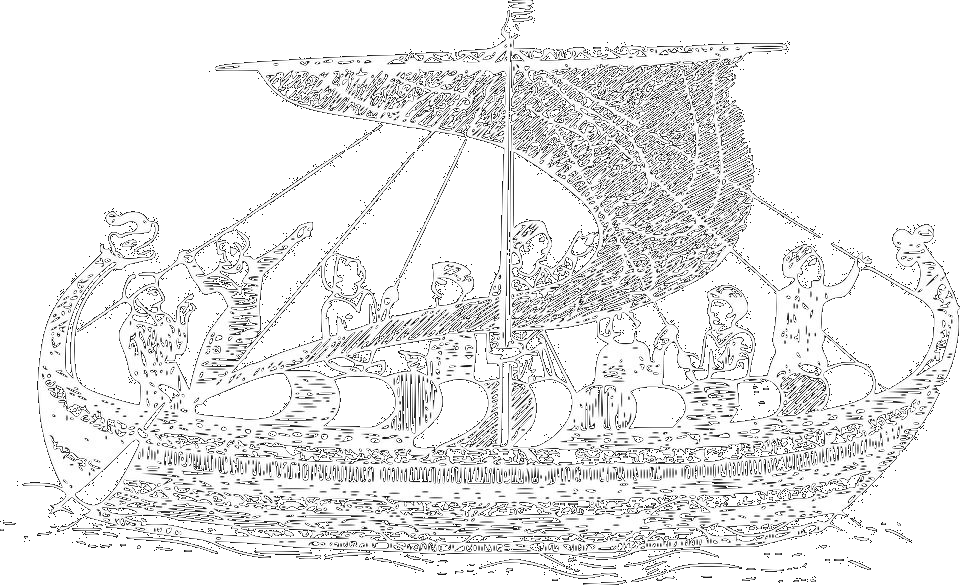
Viking invasions and Danelaw
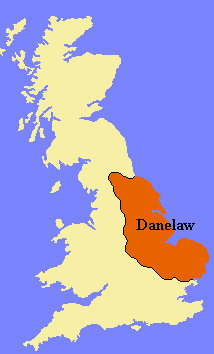
865-950
Wessex
Alfred the Great
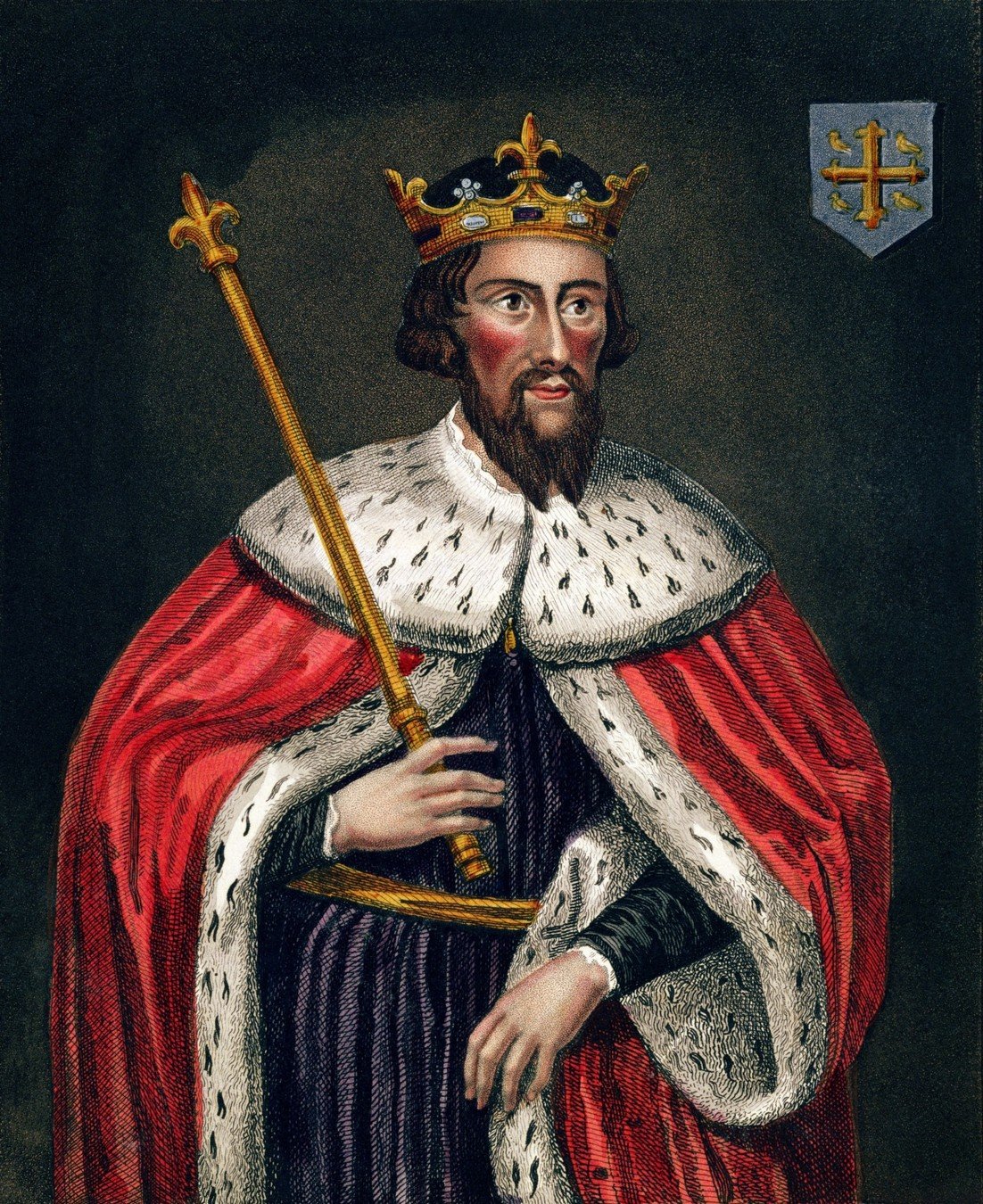
A defender of the English language
849-899
Beowulf
ca. 700-1000
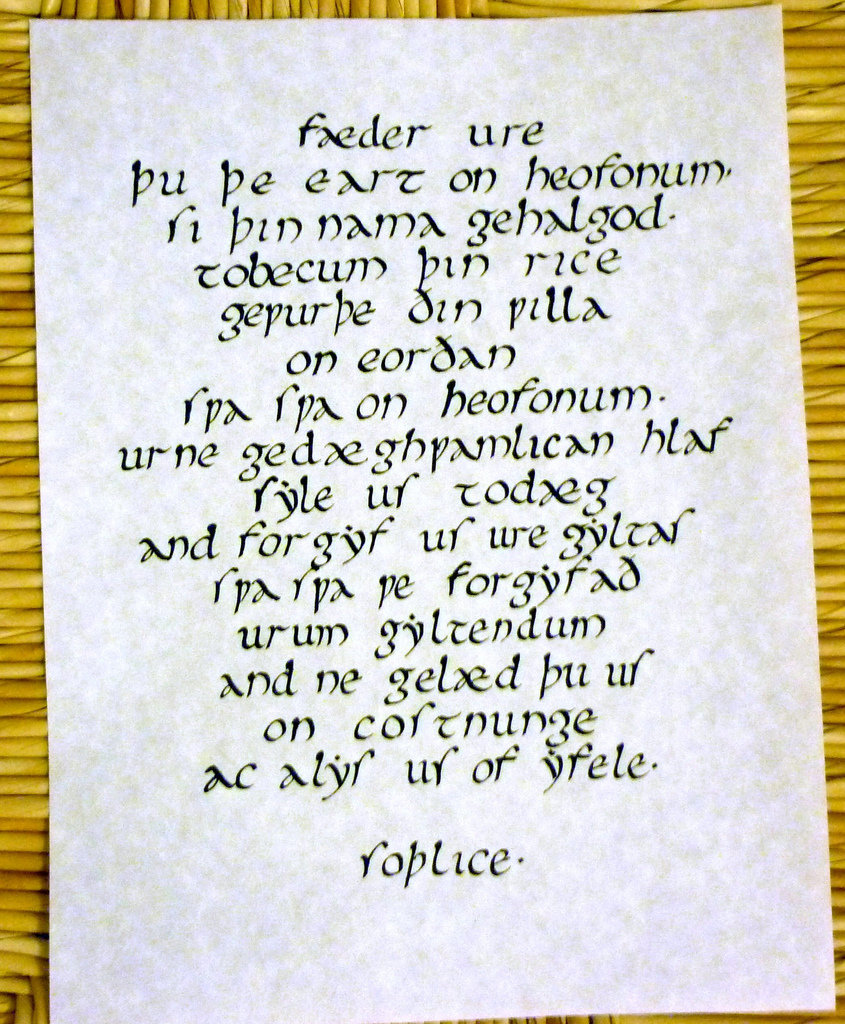
The lord's prayer in Old English
Normand conquest
The Bayeaux tapistry
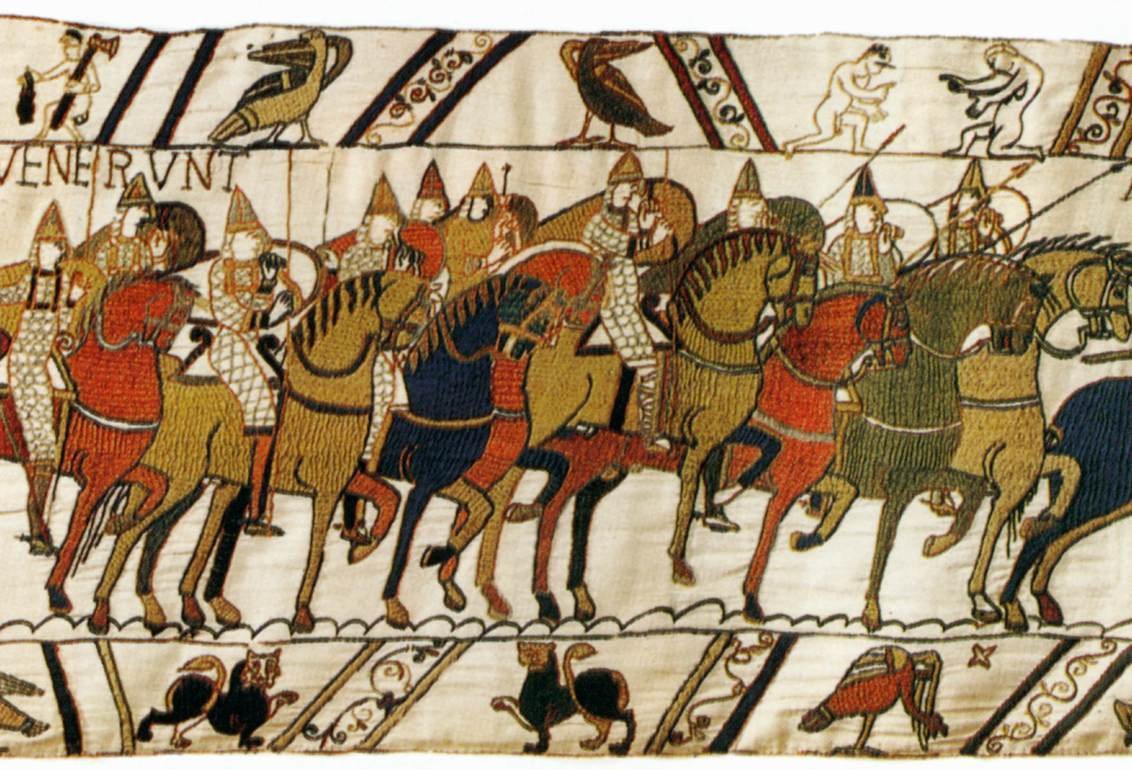
1066
William the conqueror
or Guillaume the Bastard

Was illiterate and never spoke English.
but had the greatest influence on the English language than anybody else before or since.
1028-1087
Battle of Hastings 1066
A hearty welcome
A cordial reception
The great Vowel shift
1350-1600
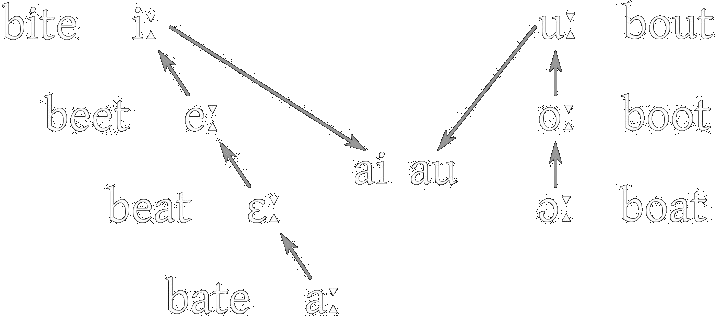
Why?
Deaths due to plague
Educated speakers of latin and french died?
Social mobility
Wars with France
General dialectal interactions
Maybe the old germanic languages have it "built into them"
- Den stora vokaldansen
Middle English
1150-1500
During this time the language continued to change. How to pronounce words and how to spell them became uniform and grammar was simplified.
Not many texts of the early middle English period survived due to norman domination - french became the language of culture, commerce and politics.


Stein
Stone
Kirk
Church
Kyrk
Kyrke
Chyrce
Kirke
Kerk
Kerke
Churche
Cherche
Chirche
Chyrche
Chyrge
schyrche
Running
Runnand
Runnend
Runnind
1469-1479
xal - schal - shall
The Canterbury tales
Geoffrey Chaucer
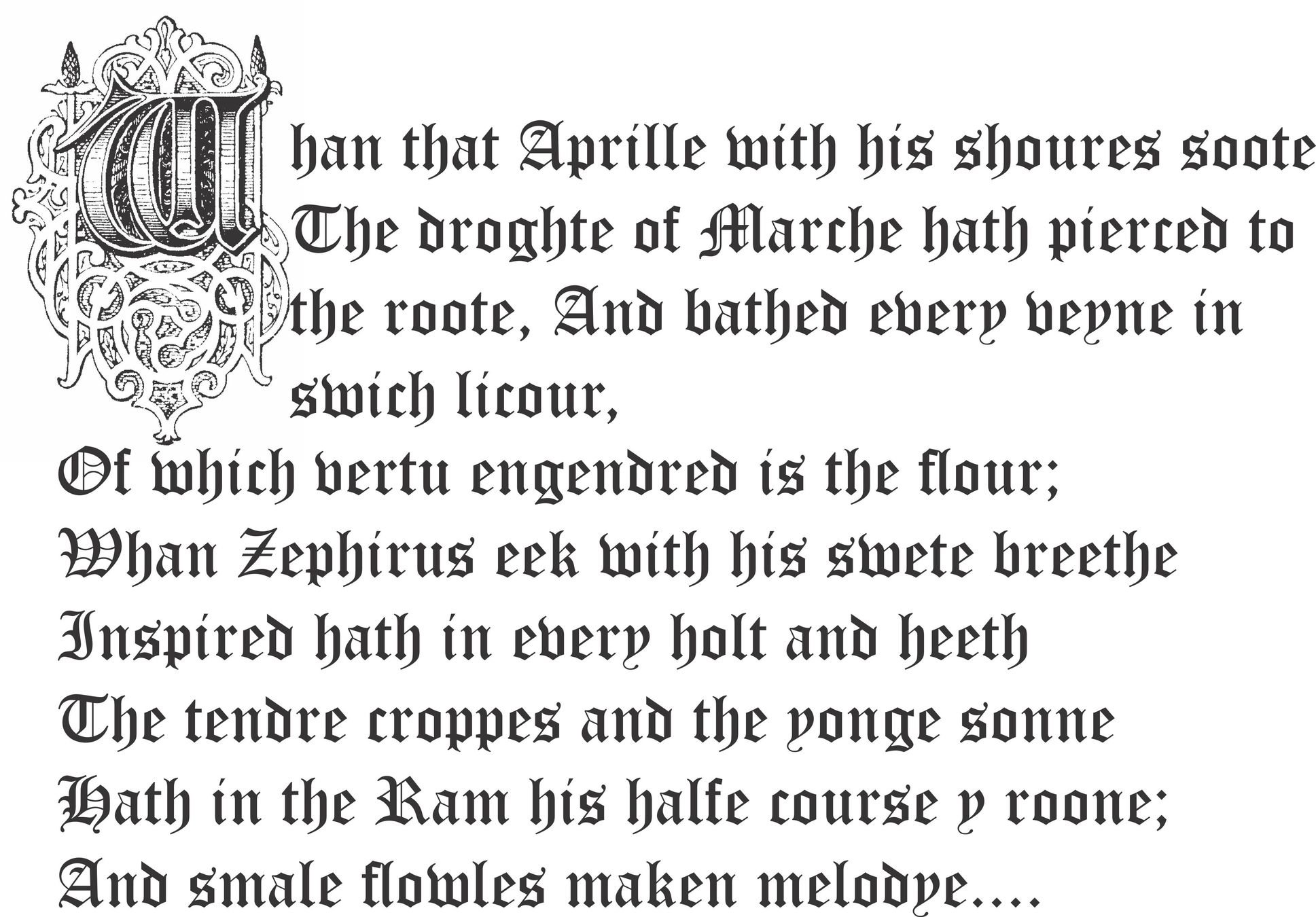
1387-1400
Shakespeare

1564-1616
Early
modern
English
The English renaissance
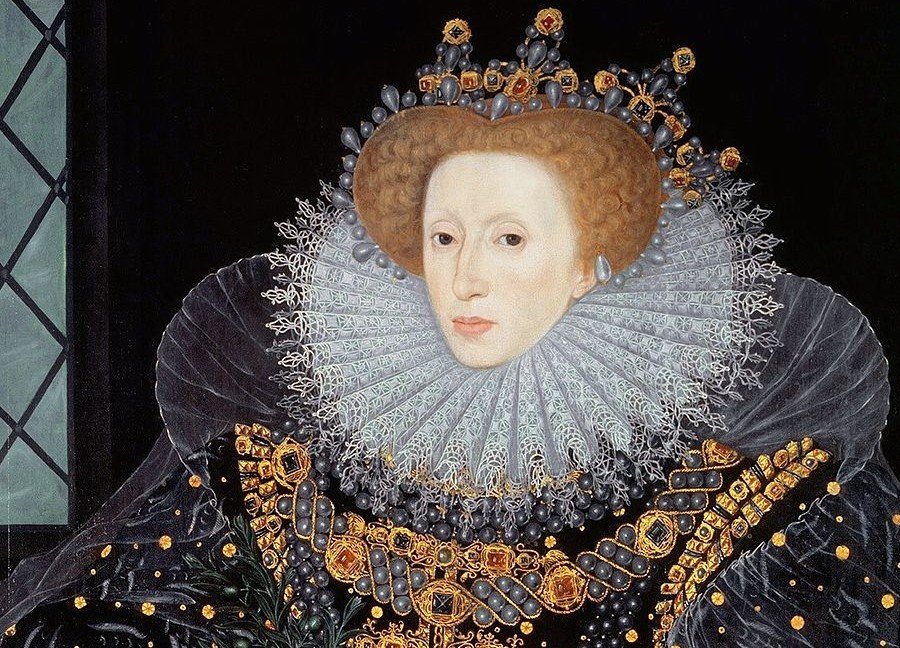
Elisabeth I
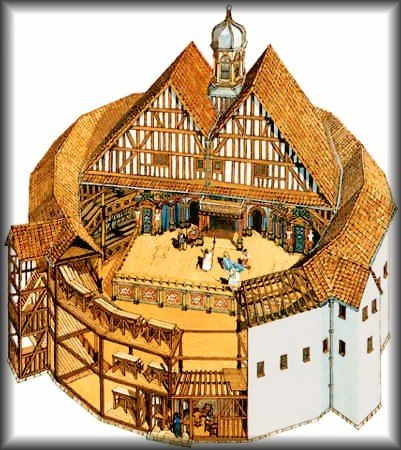
The Globe theatre
Influx of words
English started to spread
but also to absorb Words
from other languages.

Swear Words and cussing
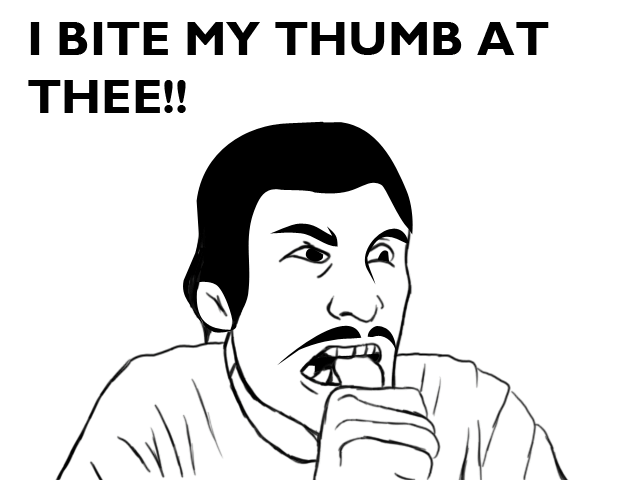
Romeo och Julia
A language that has survived the test of time
and works just as well in modern 20'th Century films.
Indoeuropean, Western branch
West European, Germanic, West Germanic
Anglo-Frisian, Old English, English.

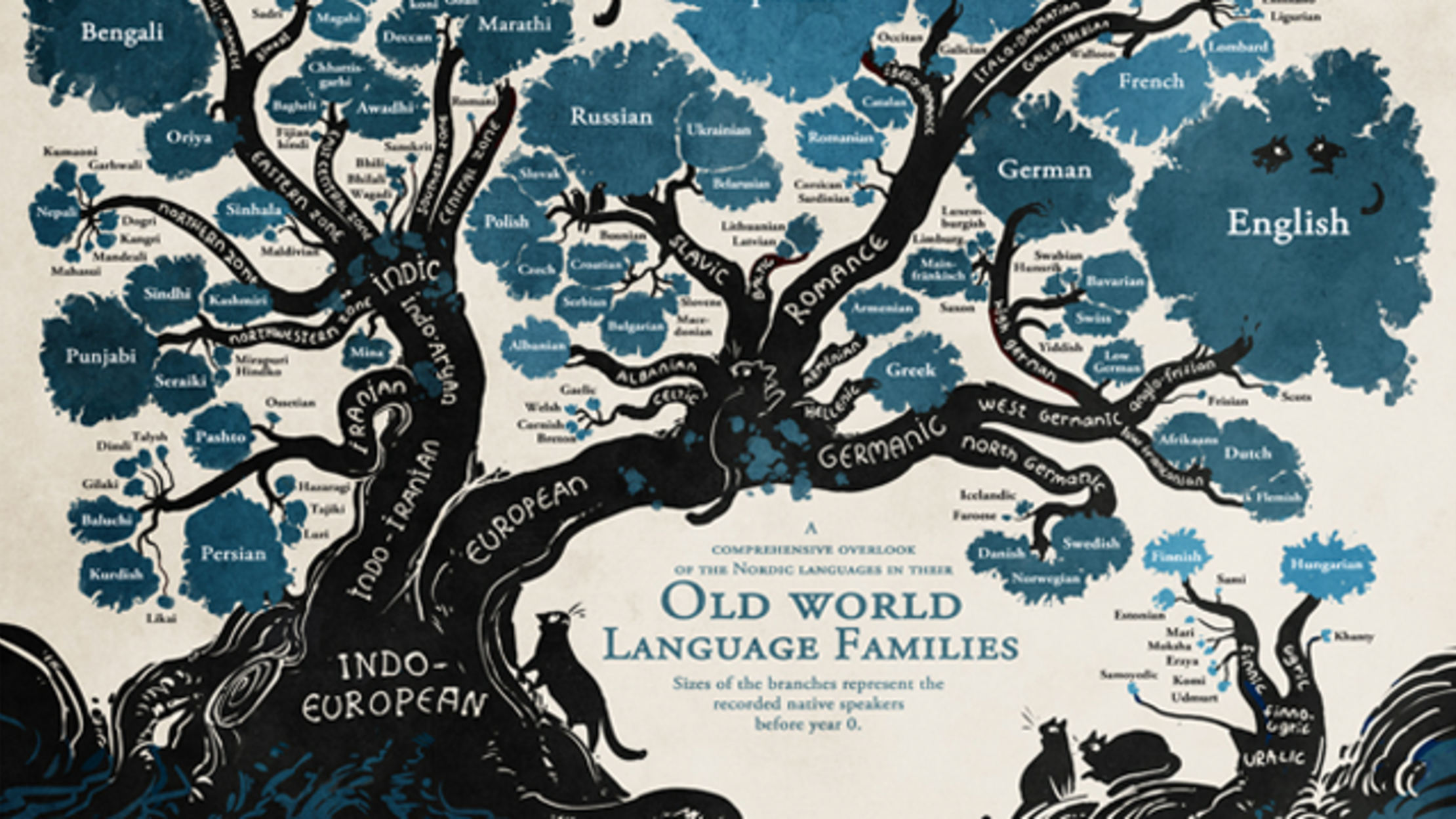
English history
By besskirsi
English history
- 2,250



